Nicaragua protests: Thousands show support for Catholic Church
- Published
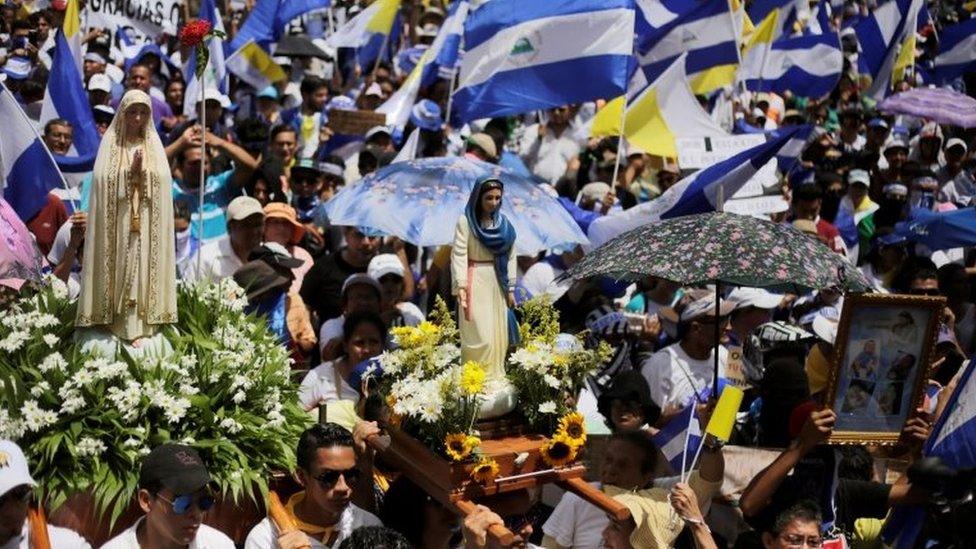
Demonstrators urged the Church to continue speaking out against police repression
Thousands of anti-government protesters in Nicaragua have taken part in a march to show support for the Roman Catholic Church.
The government accuses Catholic bishops of siding with the opposition and encouraging protests.
Followers of other religious denominations and non-believers joined the march in the capital, Managua.
More than 300 people have died since protests against President Daniel Ortega began in April.
"Justice!" and "Freedom!" were some of the slogans shouted by demonstrators.
"Our temples will always be open to those who need them," said Monsignor Carlos Avilés.
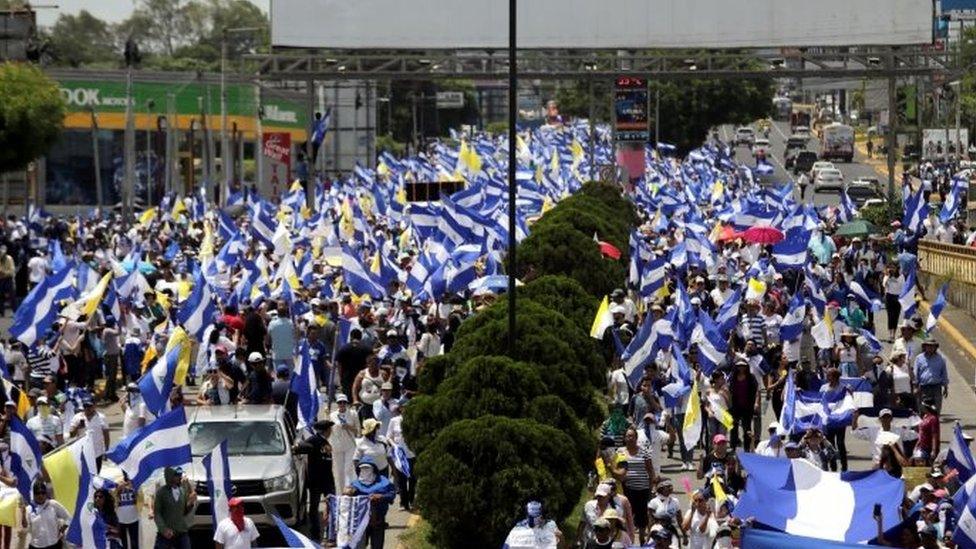
Catholic bishops say they will continue to support a negotiated solution to the crisis
"The Church will continue to support dialogue, even if it is criticised for that," he added.
Nicaragua's Roman Catholic Church has been acting as a mediator in talks between the opposition and the government.
It has called for an end to violence on both sides, but has been critical of the way the authorities handled the unrest.
Some of the bishops have accused the authorities of human rights violations.
Government supporters held a rival march elsewhere in Managua.
The protests were triggered by cuts to pensions and social security on 18 April.
But after police suppressed the demonstration and killed several university students, protesters began to demand Mr Ortega's resignation.
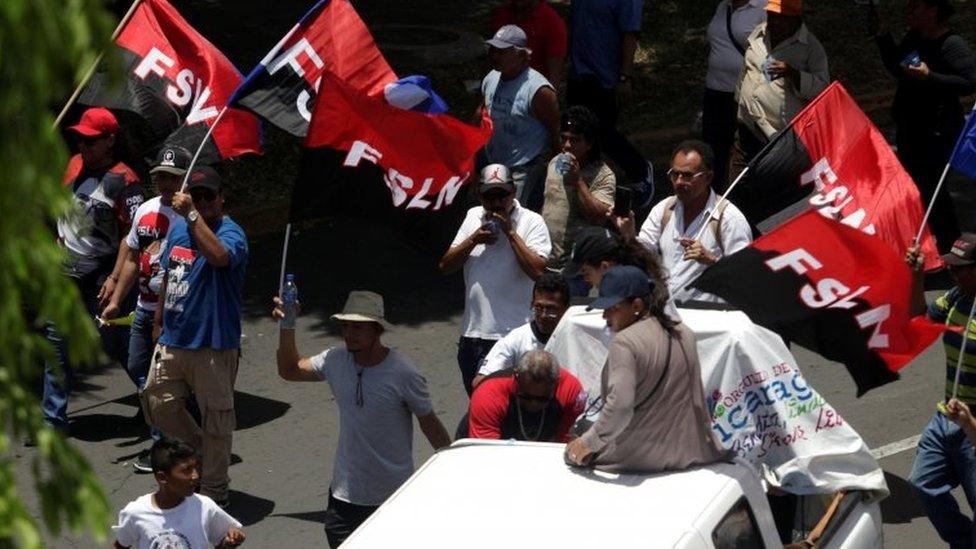
Pro-Ortega demonstrators also took to the streets in Managua on Saturday
The former Sandinista rebel leader, who is 72, has been in office since 2007.
He has rejected calls to stand down. Mr Ortega said he was democratically elected and will serve out his term, which ends in 2022.
Government supporters say the economy has grown steadily since the Sandinistas came to power 11 years ago.
They have accused right-wing sectors of stirring trouble in order to destabilise Mr Ortega's government.
- Published9 July 2018
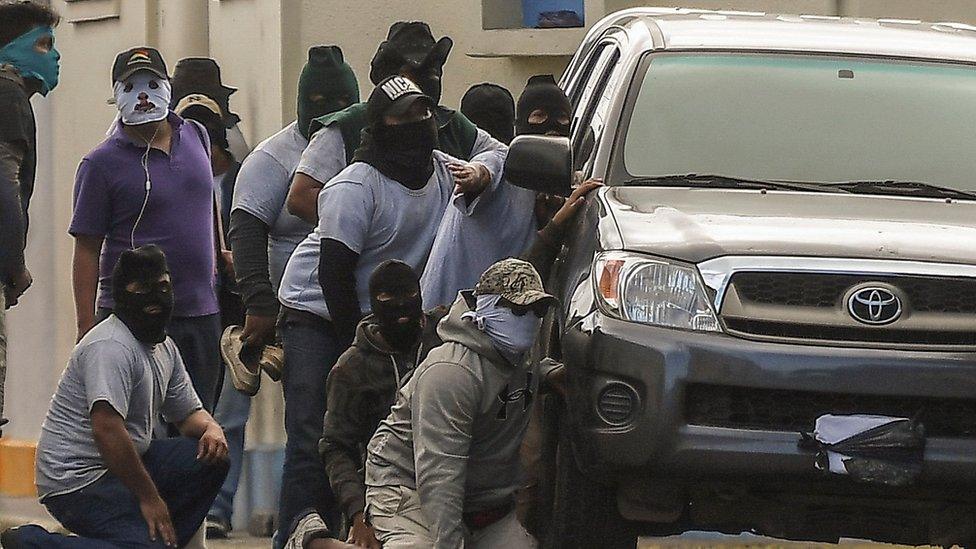
- Published18 July 2018
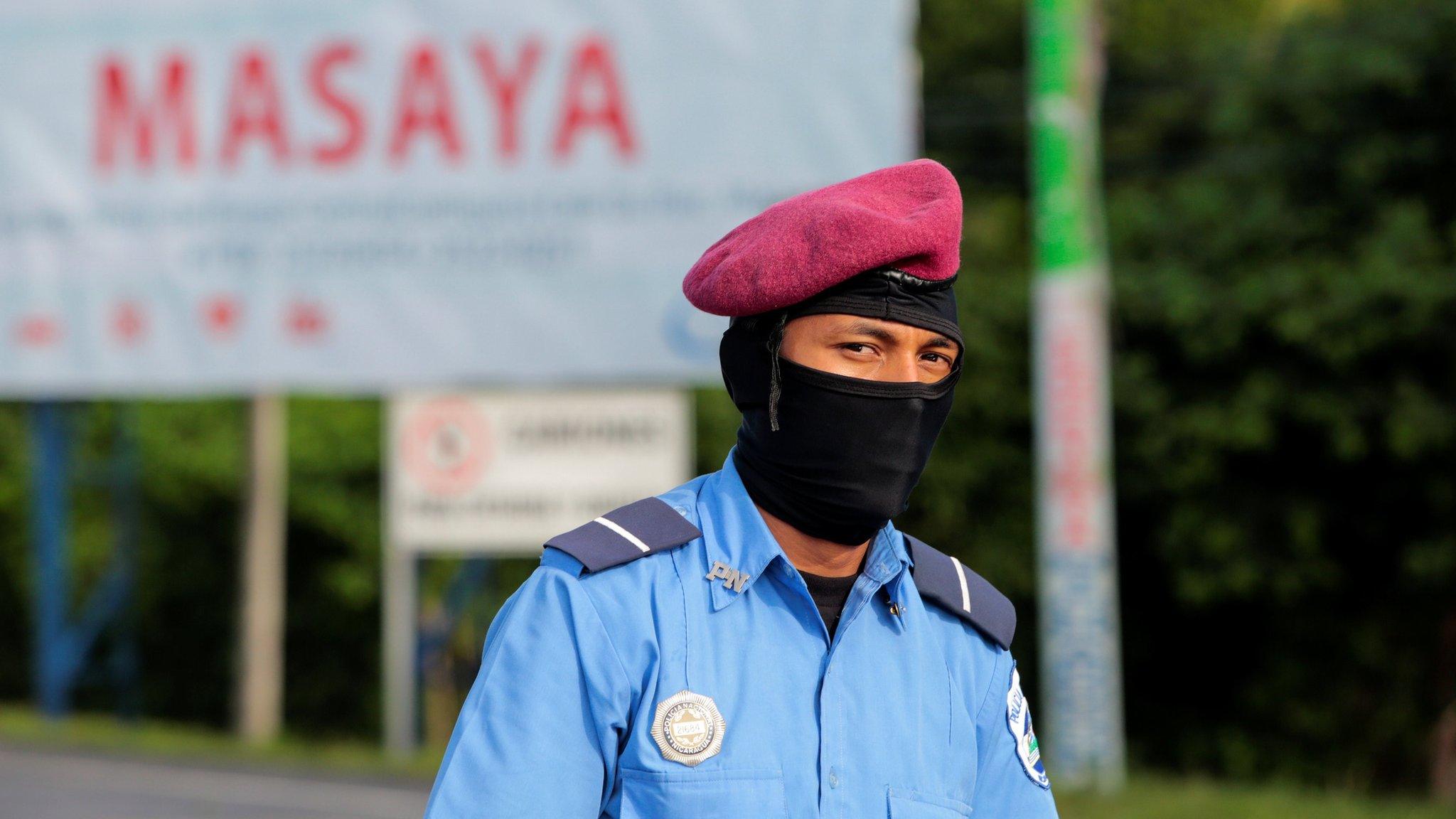
- Published28 July 2018
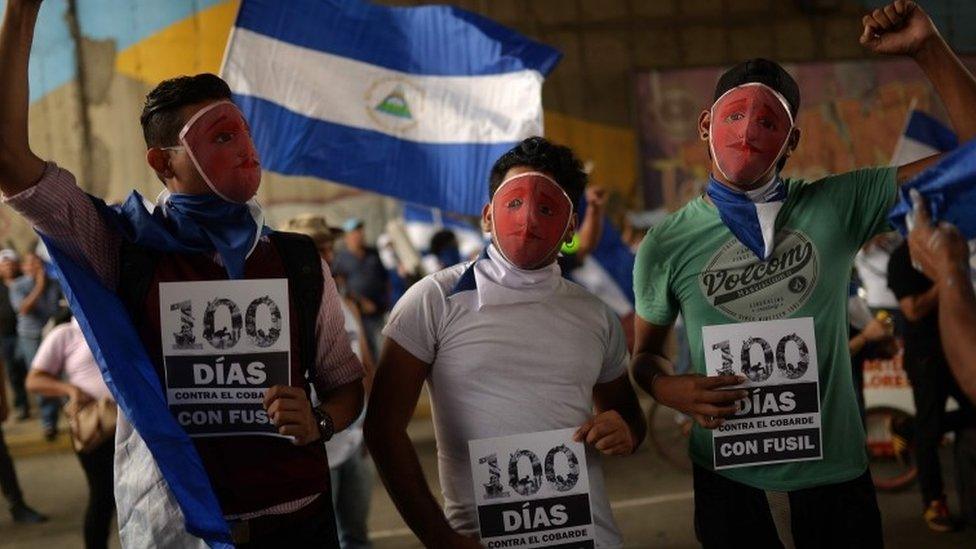
- Published29 May 2018